For teens struggling with substance use and mental health disorders, understanding treatment and rehab success rates can provide parents with clarity and hope. The team at Muir Wood Teen Treatment believes in transparency through data-driven results to help parents make informed decisions. Outcome data demonstrate that professional treatment works, particularly when treatment is comprehensive and tailored to adolescents’ unique needs.
Defining Treatment Success
Mental health and substance use disorders require prompt, professional intervention. While there is no one-size-fits-all treatment approach, a combination of holistic therapy, individualized treatment, and all-important evidence-based care can reduce symptoms and restore quality of life.
Muir Wood recognizes that treating substance use and co-occurring disorders (dual-diagnosis) is a complex journey. Effective treatment requires not only time, but the right approach. Our fully integrated programs are tailored to each individual teen’s needs and combine psychiatry, nursing, psychotherapy, experiential activities, and academic support.
Rehab success rate statistics show that completing evidence-based treatment in a specialized program, combined with family participation, is associated with favorable treatment outcomes including sustained recovery, fewer relapses, and higher levels of emotional stability.
“Recovery in teens isn’t just about stopping substance use—it’s about helping them grow into who they’re meant to be.”
– Dr. David E. Smith, Chair, Addiction Medicine & MQAC, Muir Wood
Proven Teen Rehab Success Rates at Muir Wood
Recovery from a mental health or substance use disorder is never easy. Our teen rehab success rates demonstrate the power of specialized, comprehensive care. Muir Wood uses key criteria to measure outcomes and the overall quality of treatment. According to our success rate statistics:
- Depression symptoms decreased on average from 49% to 16%.
- Anxiety levels were reduced from 46% to 18%.
- Trauma symptoms improved from 45% to 18%.
Additionally, program satisfaction rates reflect our commitment to effective treatment:
of residents feel that they benefited from the program
of parents were satisfied with our program
of families believed that the program did a good or excellent job meeting its needs
Measuring Overall Treatment Effectiveness
Research further indicates that residential teen treatment programs like Muir Wood demonstrate an advantage over shorter term approaches. Client-reported data shows that, after four weeks, Muir Wood clients consistently experience outcomes better than the national average of treatment providers. Significant improvements can be seen in symptom management, self-esteem, and emotional well-being.
Recovery
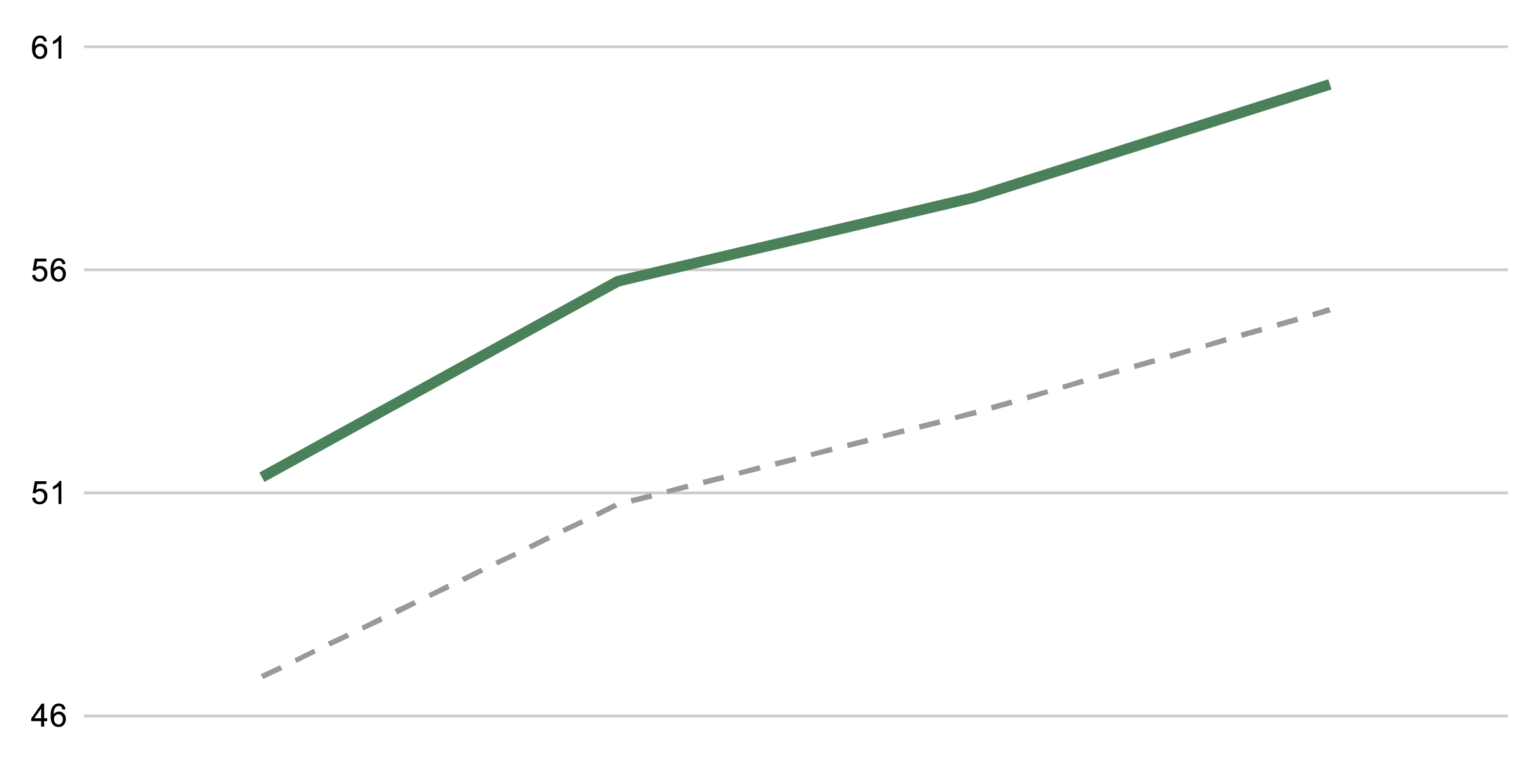
Muir Wood clients demonstrate better global recovery than the national average.
Resilience
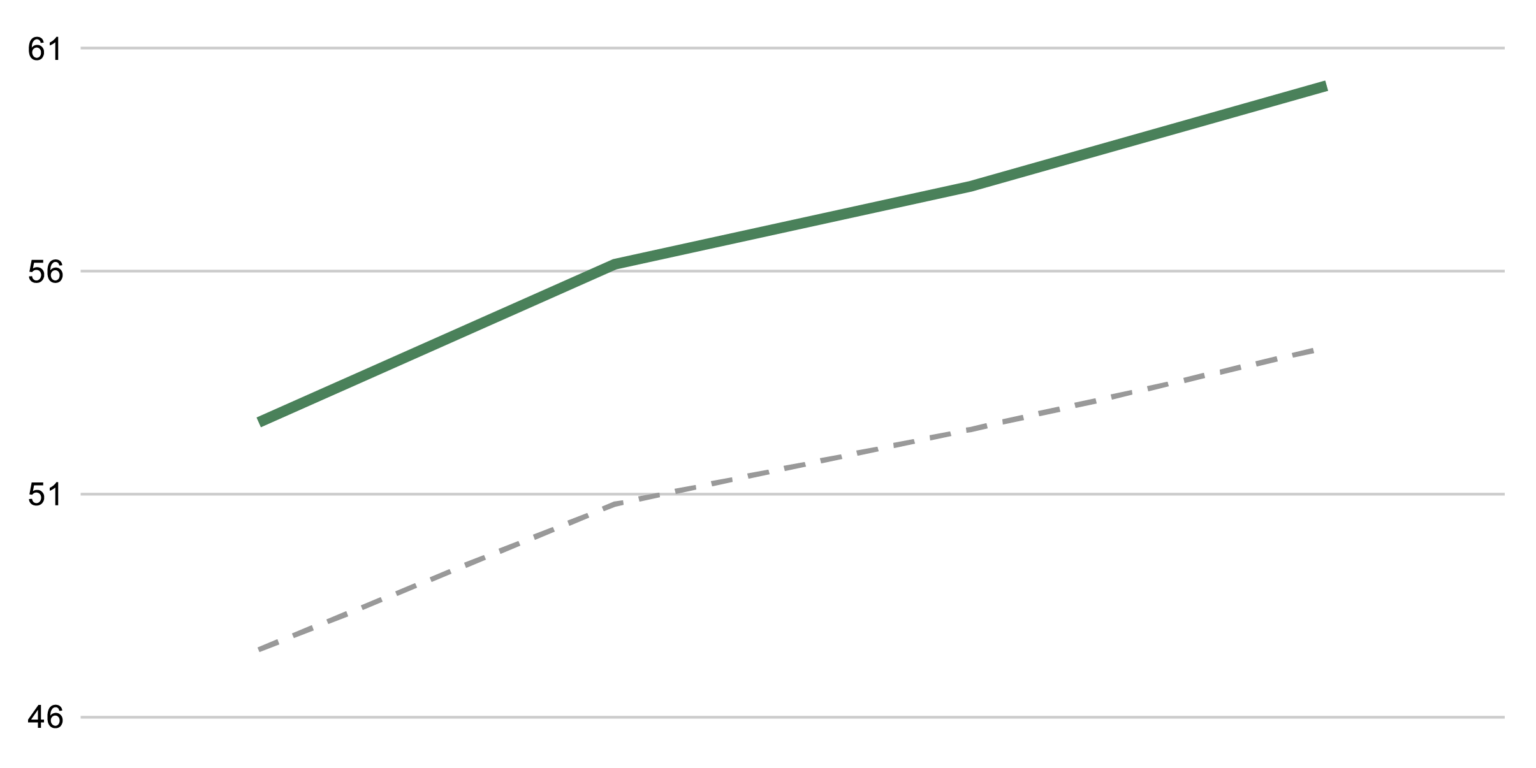
Muir Wood clients demonstrate more resilience than the national average.
Pathology
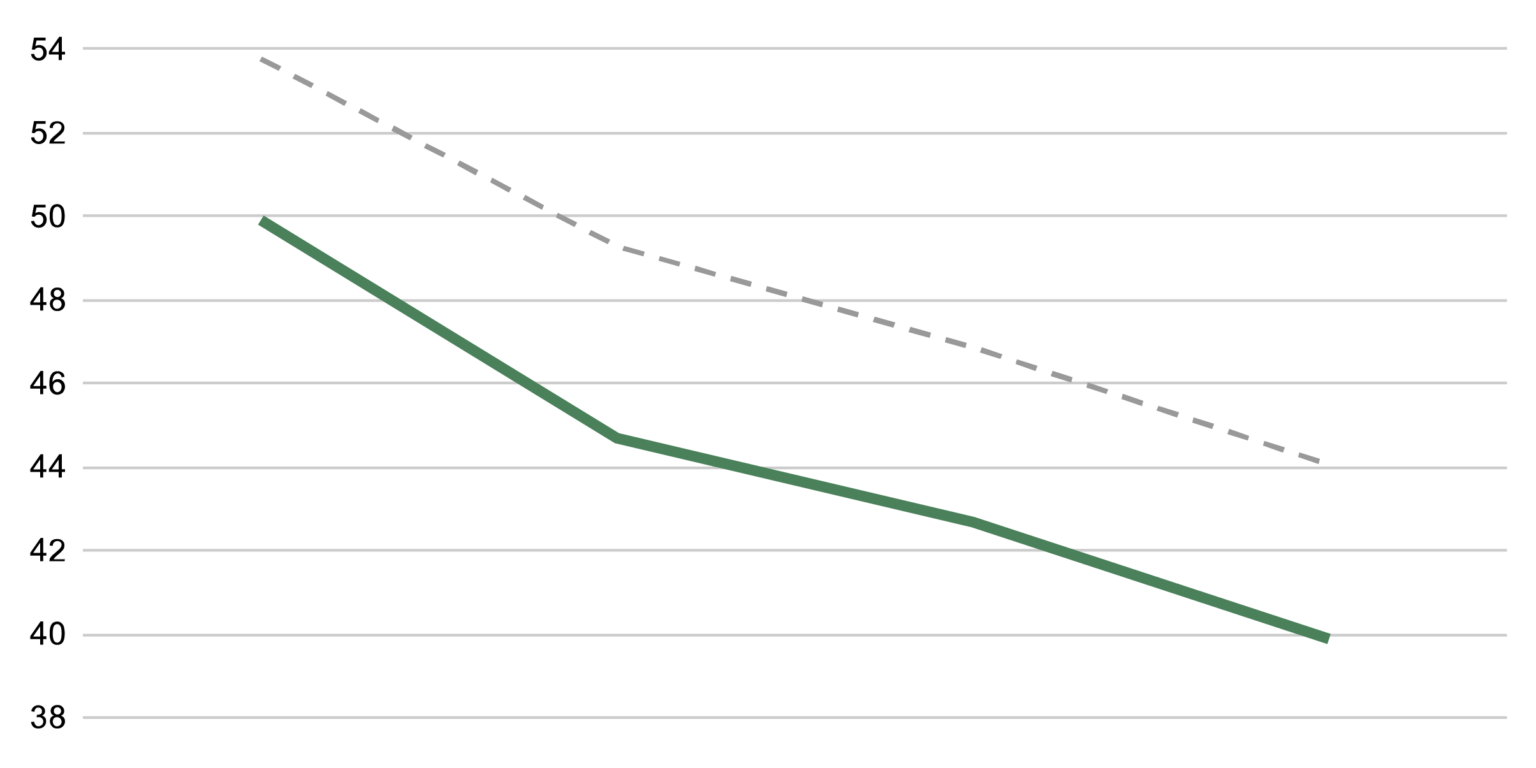
Muir Wood clients demonstrate lower pathology than the national average.
Satisfaction

Muir Wood clients demonstrate higher satisfaction than the national average.
Gratitude
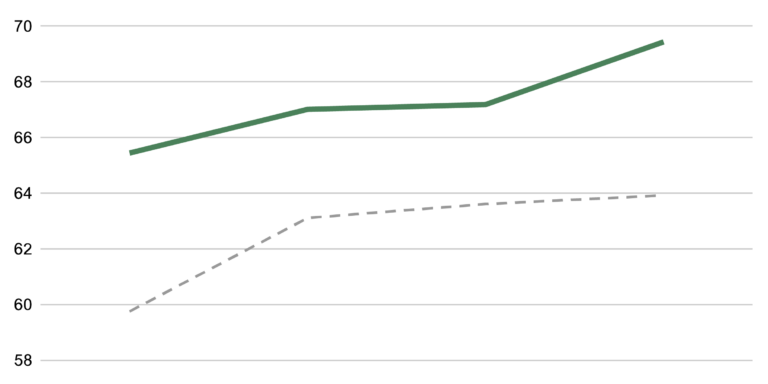
Muir Wood clients are more grateful than the national average.
Hope
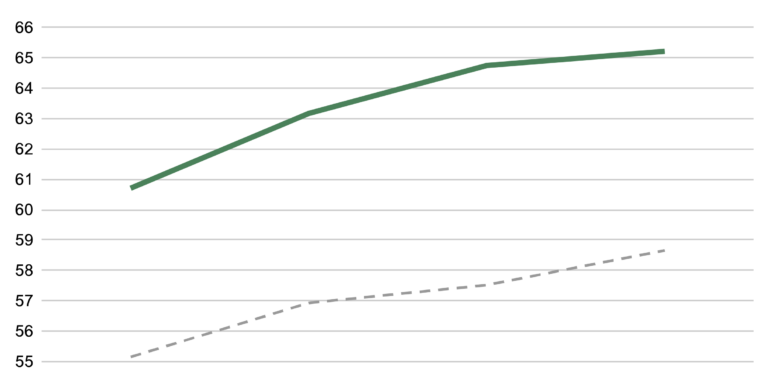
Muir Wood clients demonstrate more hope than the national average.
Optimism

Muir Wood clients are more optimistic than the national average.
Life Satisfaction

Muir Wood clients enjoy more life satisfaction than the national average.
Depression
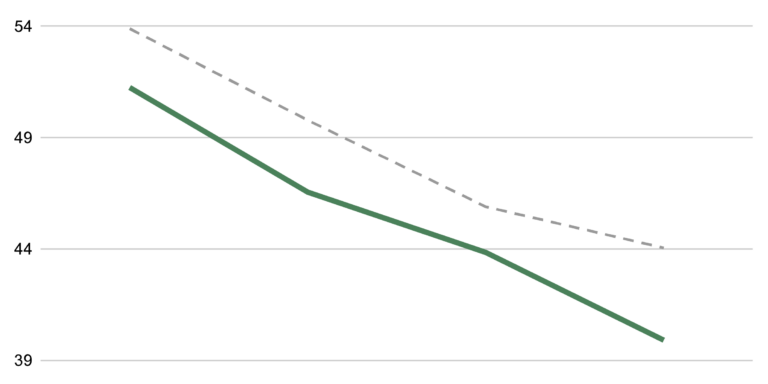
Muir Wood clients are less depressed than the national average.
Stress
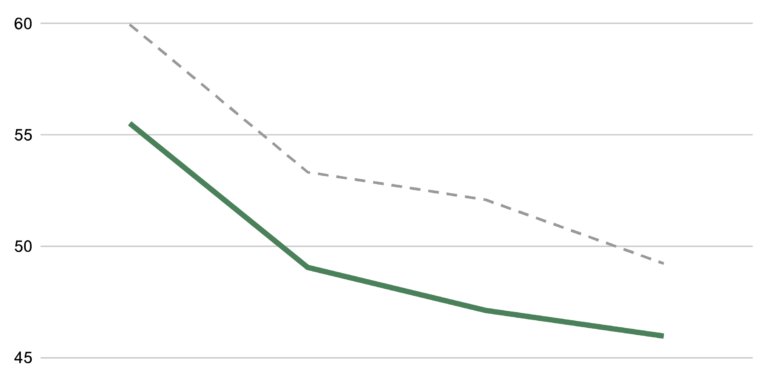
Muir Wood clients are less stressed than the national average.
Symptom Reduction Primary Diagnosis
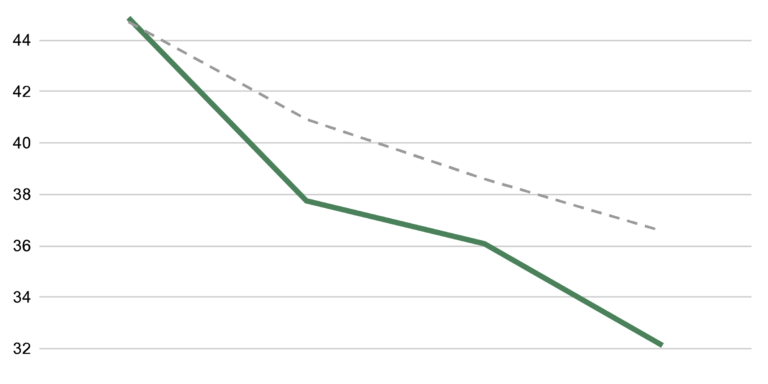
Muir Wood clients demonstrate better treatment response than the national average.
Symptom Reduction Secondary Diagnosis
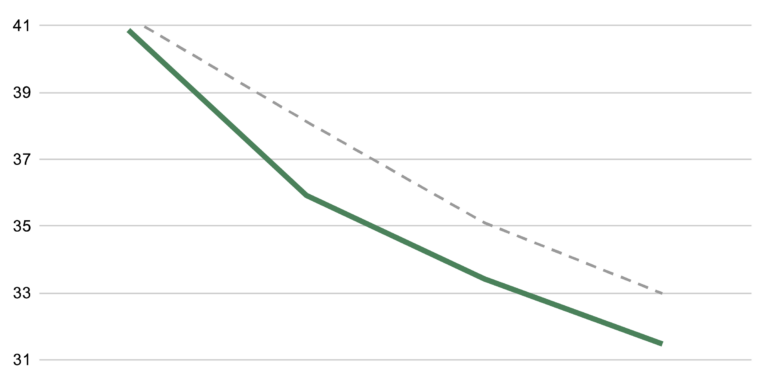
Muir Wood clients demonstrate better treatment response than the national average.
Parent or Guardian Impressions of the Muir Wood Program
Parents and guardians of Muir Wood clients report extremely high satisfaction rates with Muir Wood’s treatment services, care quality, attentiveness, and team member courtesy and compassion.
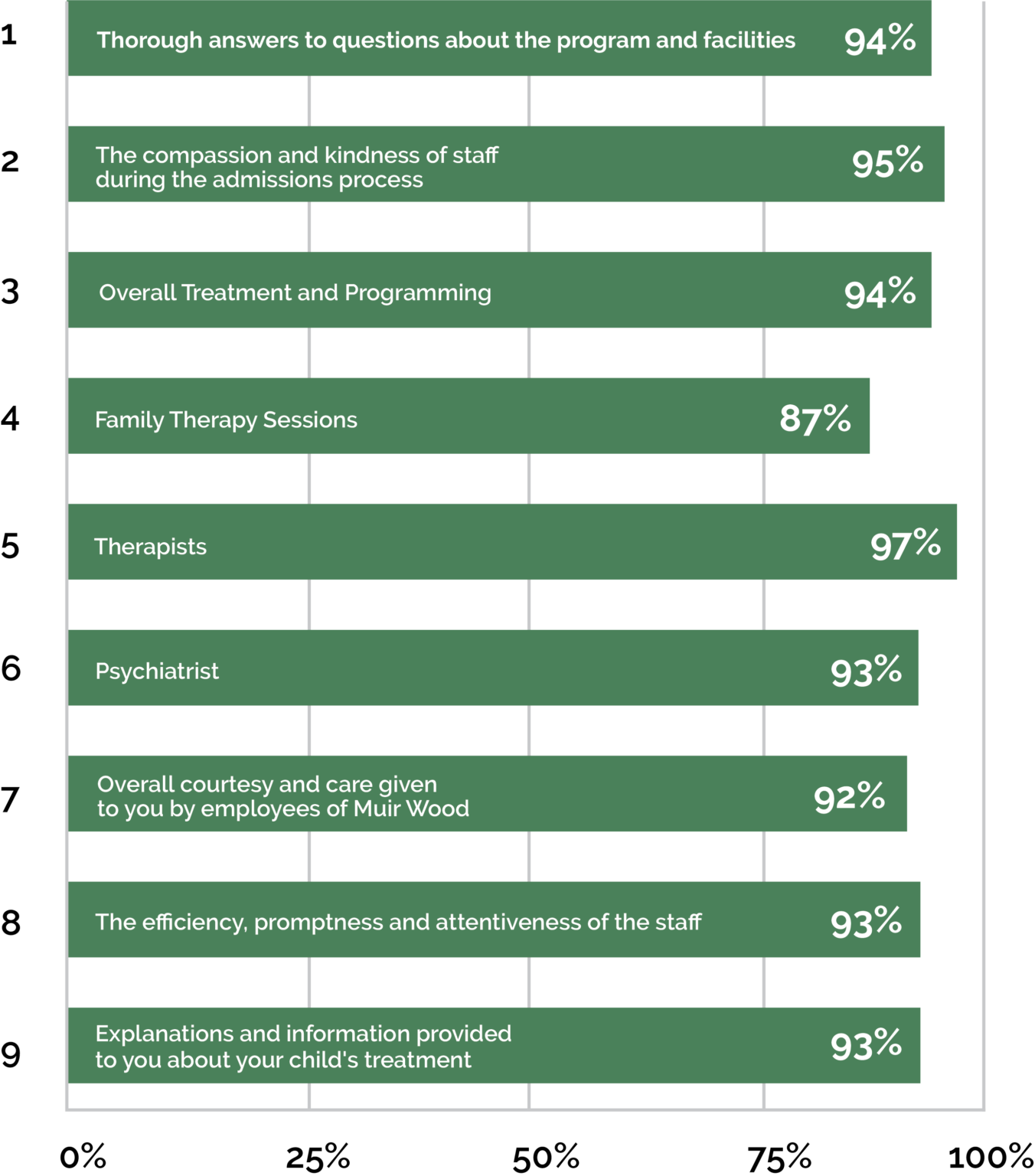
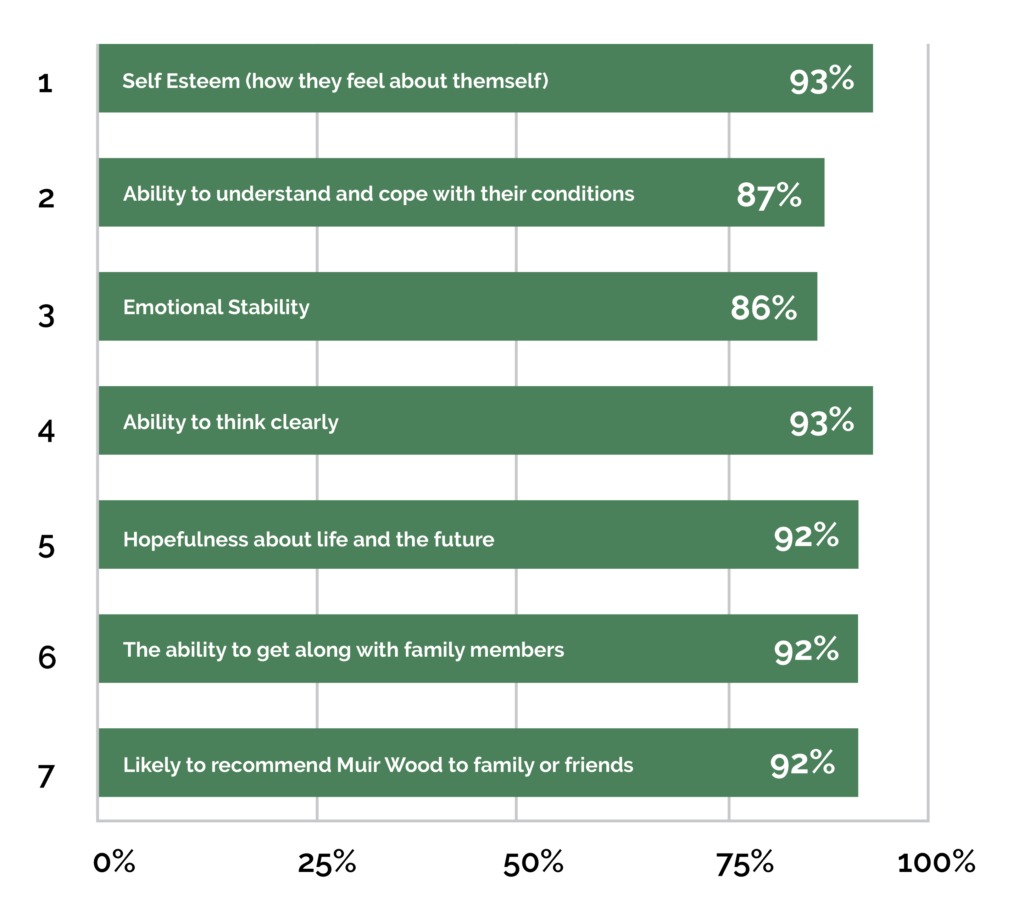
Parent or Guardian Impressions of Child Following Treatment
After receiving treatment at Muir Wood, parents and guardians overwhelmingly report significant positive changes in their child’s mental and emotional health and well-being.
Keys to Effective Teen Treatment
Successful teen recovery requires specialized treatment dedicated to the specific needs of adolescents. It is also important to consider programs that can provide adequate duration of treatment as well as aftercare support. While motivation is often highest during treatment, long-term success rates depend on continued support. We increase rehab success with effective aftercare services, which include:
- Regular “check-ins”
- Virtual weekly support groups for alumni families and teens
- 16-week family aftercare classes at no charge
Teens who continue to attend counseling sessions and group meetings—and whose parents are also committed to the rehab process—have a much better chance of staying sober than those who try it alone.
Finding Hope at Muir Wood
We understand you want the best for your teen. At Muir Wood, our proven approach helps clients define their own success in recovery with treatment plans tailored to their needs. To get started and obtain more information, you can:
- Submit a Teen Treatment Assessment
- Help us Verify Your Insurance
- Visit our Frequently Asked Questions
- Connect with our intake team.
- Call 866-705-0828 or 888-667-5412.
Teen Rehab Success Rate FAQs
Trac9 Informatics measures and analyzes our treatment outcomes using sophisticated tools that exceed Joint Commission standards. These assessments track client progress and family satisfaction, providing gold-standard-level data on our treatment effectiveness. We value what parents tell us about our program and use that feedback to continually improve program features and processes.

